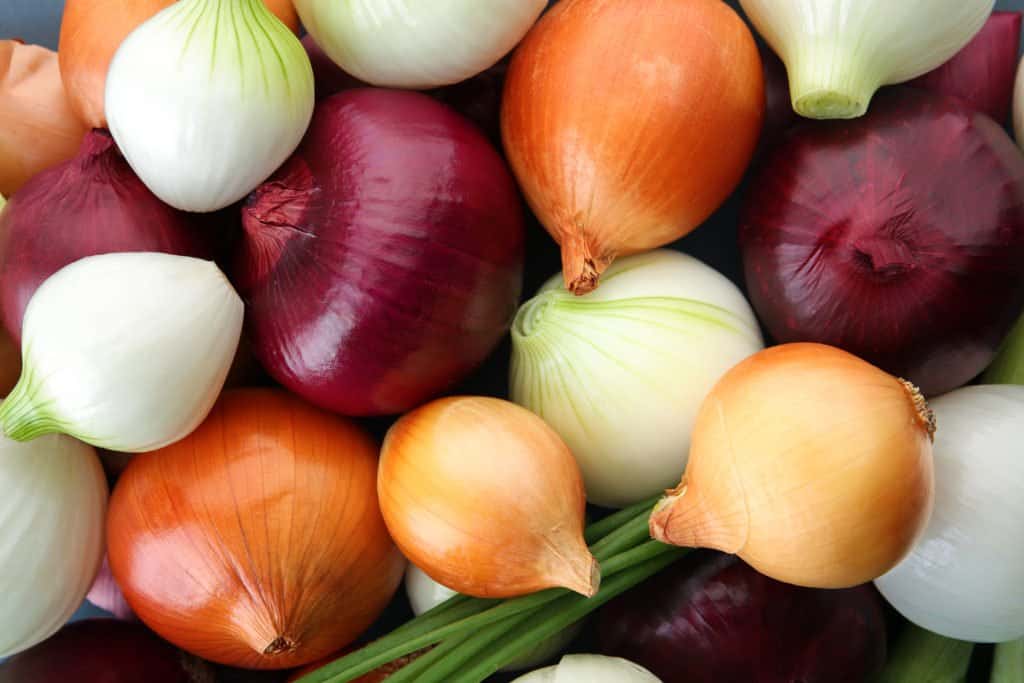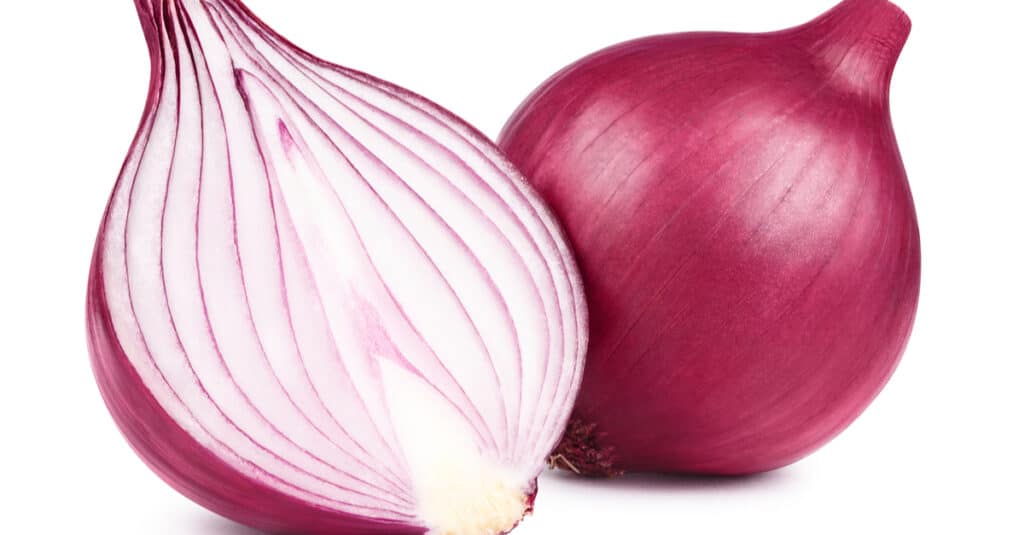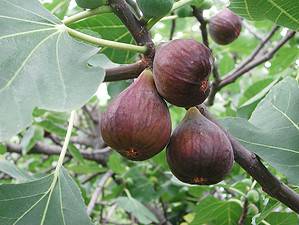Are you an onion lover and a pet lover? Have you ever wondered how these two mix? It’s easy to forget that the foods we enjoy on a regular basis can be harmful to our pets if ingested. However, once you discover how toxic onions are to your fur friend, you’ll realize the importance of being extra careful in the kitchen. Keep reading to learn more about onion poisoning in pets and what to do if your dog or cat ingests onion!
Are Onions Poisonous to Cats or Dogs?

All veggies in the onion family (leeks, garlic, and scallions) are highly poisonous to cats and dogs.
©New Africa/Shutterstock.com
You may be surprised to learn that dogs and cats can become poisoned by all parts of the onion, including the leaves, flesh, skin, and juice, whether cooked or uncooked. In fact, cats and dogs are not just poisoned by the typical onion, but all vegetables in the onion family! That’s right; the entire onion family, even those dehydrated or powdered, can deplete a pet’s red blood cells and lead to anemia.
How can such a commonly used veggie be so dangerous to our pets? It’s due to N-propyl disulfide, a toxic chemical found in onions. This onion component causes dogs and cats to lose their red blood cells, resulting in anemia. The toxin causes oxidative damage by sticking to the oxygen molecules in their red blood cells. Any onion (white, yellow, or green) can produce onion toxicosis.
Dogs and cats should avoid eating any of the following Allium family or onion genus vegetables:
- Chives
- Garlic
- Leeks
- Onions
- Scallions
All of these can be deadly to dogs and cats if consumed in high quantities or nibbled on repeatedly over time. In fact, garlic is thought to be five times as harmful to cats and dogs as onions! Preparations like soup mixes containing onion or garlic powder can potentially be deadly if ingested in large quantities.
How Much Onion Is Bad for My Dog or Cat?
This depends on your dog’s weight. Cats are at risk if an onion contains more than 1 gram per 5 pounds of body weight. When a dog consumes more than 0.5 percent of its body weight in onion in one sitting, toxicity ensues. A 30-pound dog, for example, would need to eat about 2.5 ounces of onion or garlic to become ill. Simply put, a small bit of onion, garlic, or other toxic allium food can quickly poison a pet.
How Long Does It Take for Onion to Affect Dogs?

The symptoms of onion poisoning begin between the first and third day after ingesting onions.
©Yeti studio/Shutterstock.com
Onion-related symptoms typically begin to develop one to three days after a pet eats an onion. It is at this point that the effects of damaged and dying red blood cells can be seen in the body. Veterinarians will most likely induce vomiting if your pet has eaten onions within the past one to two hours. However, never attempt this yourself, as it can cause further harm when not done right. If it’s been longer than a few hours, your vet may give your pet activated charcoal to help absorb poisons.
Signs Of Onion Poisoning in Pets
Symptoms can take up to a week to manifest, so keep this in mind. There are several signs and symptoms of a digestive system problem, including:
- Loss of interest in food
- drooling
Some of the more serious side effects pertaining to red blood cell destruction include:
- Bloody Urine
- Elevated Heart And Respiration Rate
- Fatigue
- Heavy Breathing
- Pale Gums
- Vomiting Blood
- Weakness
Your pet should be taken to the vet immediately if he ingested onion and exhibits any of the following signs noted above. In severe cases, your pet may require oxygen support, blood transfusion, and intravenous hydration.
In Conclusion
It’s important to remember that all onions are poisonous to cats and dogs. No onions are safe, whether white, yellow, red, or green. It also doesn’t matter whether the onion is cooked, raw, or in powdered form. Because the disulfide molecule does not dissipate with heat, cooked onion is just as dangerous as raw onion.
The photo featured at the top of this post is © Godai Das/Shutterstock.com
Thank you for reading! Have some feedback for us? Contact the AZ Animals editorial team.






